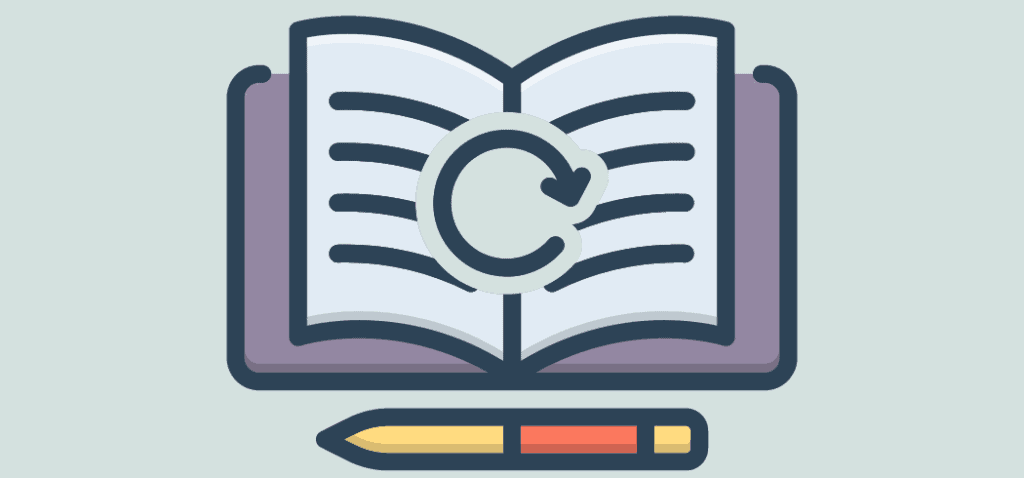How is revising different from editing? This guide covers the main differences between editing and revising. It also provides examples of tasks under each stage.
What’s the Difference Between Revising and Editing a Paper?
The main difference between editing and revising is their focus. When one revises after the process of writing, they take a second look at your idea and information.
The process of revising makes a piece of writing stronger by making the ideas of the writer clearer. You also make the information more engaging, interesting, accurate, or compelling.
Meanwhile, the editing stage occurs at several levels. But the most common editing conventions include fixing the writing style.
Content editing, copy editing, and substantive editing involve fixing the sentence structure, grammar, and punctuation to make the ideas clearer.
The editing process can also be developmental. Here, the editor evaluates the “larger picture” of your work. They suggest changes to plot holes, character traits, dialogues, and sequences of stories.
Take your grammar skills to the next level
Take Our Copyediting Course
Similarities Between Editing and Revising

We know there is a connection between writing, editing, and revising. But the main similarity between the revising and editing process is that they both take place after the writing process. They also have the same goal of improving your original writing.
It’s not enough to finish an initial draft and only make a few changes afterward. All types of writing should undergo revising and editing to prevent slip-ups.
Understand the Difference Between Editing vs. Revising
Knowing the difference between them is crucial because it will help you decide which process you need for your writing.
Most deductions or errors in college essays are primarily due to careless editing. With that, it’s time to start revising and editing your papers before submitting them. One small mistake in your structure of writing could lead to a failing mark.
Another reason to know the difference is to help you understand the exact steps to take. You can’t spot all mistakes in your writing with only one editing pass. You must attempt several revising and editing passes to perfect and polish it.
What are the Three Stages of Revision and Editing?
The basic idea behind having several stages for revising is to make both big and small changes. The three stages involve:
- Revising, where one makes logical changes to the arguments and sequence of events.
- Editing, where one becomes a grammar police and corrects grammar and spelling errors.
- Proofreading, where one takes a final look at the text on a sentence level.
What Comes First, Revision or Editing?
Revising comes first before editing. This allows the writer to fix the accuracy of the information and strengthen their arguments.
Once the writer has finished making logical changes, they can start correcting grammar errors and other mistakes.
Revising and Editing Example
Consider this short paragraph as an example:
“Spending time with family has benefits for children. First, studies show that a close bond within the family keeps the house clean and organized. Second, it lowers childrens risk of behavioral problems. They are less likely to have issues with substance abuse or violence. Lastly, spending time with the famiy help children perform well academically.”
The revising stage may include the following tasks:
- The sentence “First, studies show that a close bond within the family keeps the house clean and organized” should be omitted, as it lacks relevance to the primary discussion regarding the benefits of family time for children.
- Including more supporting details for the main argument.
Meanwhile, editing involves:
- Changing “childrens” to “children’s.”
- Changing “famiy” to “family.”
- Changing “help” to “helps.”
Hiring an editor who can perform revisions and edits on your work is always a brilliant idea. Make sure they are a stickler for grammar and have sharp attention to detail. This is ideal for student writers and researchers who want to make fundamental improvements in their writing.
But some sophisticated writers and authors may opt to hire separate professionals for the two processes.
Editing and Revising Checklist

If you’re an English teacher, you can use this guide to check student writing, whether it’s a story, essay, or research paper.
Revising
The revision process is in charge of the traits of ideas and other traits of writing (voice, presentation, conventions, organization, fluency, word choice). Here are some revision tasks teachers, students, and writers should follow.
- Remove off-topic sentences.
- Add new information.
- Add spider-leg sentences (trait of ideas).
- Move sentences around.
- Variety of individual sentences (from the trait of sentence fluency).
- Perform story surgery or rearrange the whole text to make the story stronger.
Editing
Editing typically involves changing some words in your piece of writing to make it grammatically correct or correctly spelled. You may consult a reliable grammar checker to help you fix the remaining grammar mistakes you didn’t catch.
- Check for grammar and spelling mistakes.
- Proper punctuation.
- Sentence readability.
- Fix issues with sentence structure.
- Adding quotation marks.
- Make the flow of ideas logical by fixing mixed-up ideas
Revising vs. Editing Summary
Now you know the differences between editing and revising. Both processes are necessary to help you produce high-quality writing with sound arguments, clear information, and error-free text.
Remember that revising focuses on your ideas, arguments, and information. Editing refers to correcting spelling, grammar, and punctuation errors.
